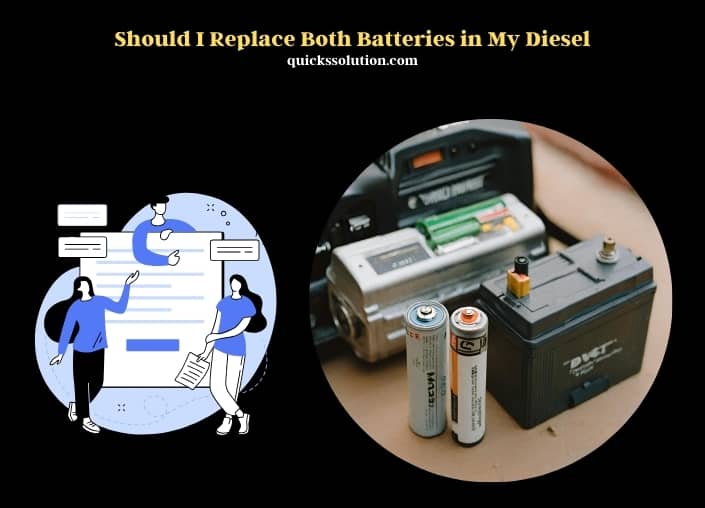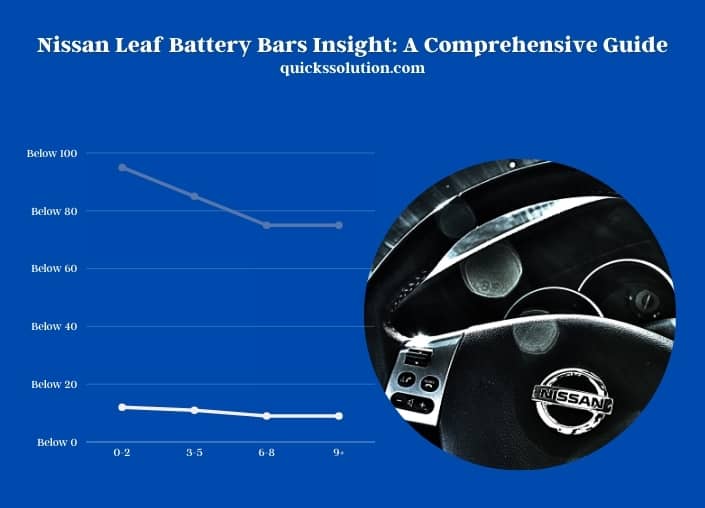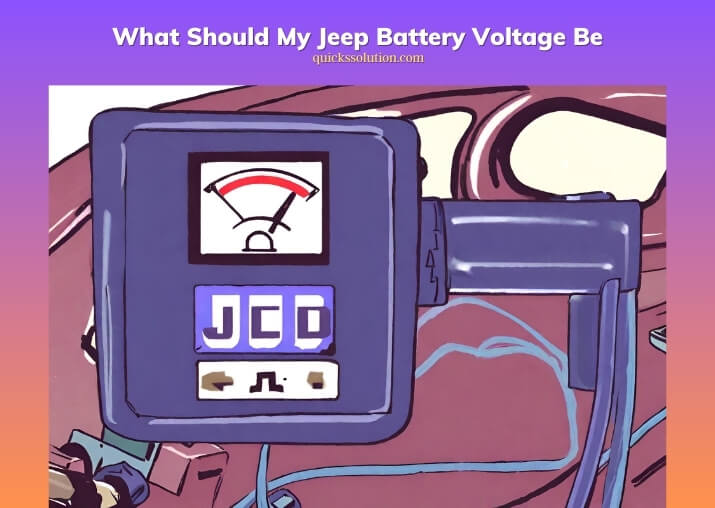Published on: August 12, 2023
Written by Amlan Roy / Fact-checked by Hashim Manna
If your Dodge Charger is making noise when accelerating, it’s typically a sign of a problem in the vehicle’s engine, transmission, or exhaust system. Identifying the specific type of noise can help diagnose the issue.
Now let’s dig into this a bit more. If you hear a rattling noise, it might be something as simple as loose parts or something more serious like a failing catalytic converter. Grinding noises often point to issues with your brakes or transmission. Maybe you’ve heard a squealing sound? That’s usually a sign of a worn-out belt or problems with the power steering system.

Knocking can be particularly alarming, as it might mean there’s something wrong with the engine’s pistons or connecting rods. A humming noise is often associated with wheel bearings or a failing fuel pump. Clunking? That’s usually tied to suspension issues. Whining might be a red flag for your power steering pump. And if you feel a vibration or hear roaring, it could be your tires or wheel alignment. Clicking might mean there’s a problem with your CV joint.
Now that you know what’s going on, it’s time to take action. The noises your Dodge Charger makes when accelerating are more than just annoying; they could be signaling serious issues with your car. So don’t wait. Check out the detailed article below to figure out the exact problem and what to do about it. It’s all there, waiting to help you get your car back in tip-top shape.
Overview of the Problem
Identifying the Symptoms
So, your Dodge Charger is making noise when accelerating, and it’s driving you up the wall, isn’t it? Worry not; we’re here to help. This isn’t just a random occurrence; it’s a signal. Perhaps it’s a high-pitched squeal, or maybe a low growl. Pinpointing exactly what type of noise you’re hearing will be the first step in finding a solution.
Common Complaints and Concerns
Owners of Dodge Chargers often report various noises. Some are harmless, while others can indicate a real issue. Common concerns might include clicking, rattling, or humming. Recognizing what’s ordinary and what’s alarming is essential. Who wants to ignore a noise that turns out to be a costly repair later on?
Noise Analysis: Frequency and Types
High-Pitched Sounds
A high-pitched sound, like a siren in the distance, can be distressing. It might be a belt issue or something with the pulleys. Intriguing, isn’t it? Just like a musical instrument playing the wrong note, your car is singing to you. We’ll figure out how to make it hit the right notes again.
Rattling or Clunking Noises
Ever heard your car sound like it’s carrying a box of rocks? Rattling or clunking noises can be signs of loose or worn parts. It’s like a loose screw in a door hinge; it needs to be tightened up. Let’s find out how to quiet those rocks down.
Whining or Grinding Sounds
Whining or grinding is a noise you can’t ignore. It might be a sign of a more serious issue like transmission problems. Imagine trying to grind coffee beans with a broken grinder; it’s not a pleasant sound. This noise demands immediate attention, so let’s get to it!
Noise Types and Corresponding Concerns
| Noise Type | Possible Causes |
| High-Pitched Sounds | Belts, Pulleys |
| Rattling or Clunking | Loose Parts, Worn Components |
| Whining or Grinding | Transmission, Gear Issues |
Mechanical Causes
Engine-related Issues
Your car’s engine is like its heart, and when it’s acting up, it sure gets your attention. A noise might signify a problem with the spark plugs or even the cooling system. The key is to catch it early, before a small noise turns into a big problem.
Transmission Concerns
Transmission noises are like a warning siren; they signal that you need to pay immediate attention. A humming or whining sound from the transmission area can be particularly concerning. Imagine the gears of a clock meshing together improperly; it’s time to take action.
Exhaust System Noises
A loud roar that sounds like a lion might seem cool, but it might mean a problem with your exhaust system. It’s like having a hole in a trumpet; the sound just isn’t right. Whether it’s a simple muffler issue or something more serious, we’ll find out what it is.
Non-Mechanical Causes
Aerodynamic Factors
Did you know that something as simple as a roof rack or a misaligned window can cause noise? It’s like the whistle of the wind through a crack in your window. Sometimes the most straightforward solutions can make your Dodge Charger sound like new again.
Loose Interior Components
Loose interior parts can rattle and buzz, annoying you to no end. It’s like having a buzzing bee trapped in your car. It’s not harmful but certainly bothersome. Let’s find out how to calm that bee down.
Tire and Wheel Resonance
Sometimes the noise isn’t coming from inside the car at all. A tire imbalance or wheel issue can make a noise that echoes through the vehicle. Imagine riding a bike with a wobbly wheel; it’s unsettling, isn’t it? Time to get things rolling smoothly again.
Inspecting the Vehicle: A Step-by-Step Guide
Preliminary Checks
Before we dig in, let’s take a cursory look at the car. Check the oil, fluids, and tires; it’s like doing a quick health check before running a marathon. We want to catch any glaring issues before moving on.
Under-the-Hood Inspection
Let’s pop that hood open and take a look inside. It’s like peeking into a treasure chest, full of complex parts and components. Checking belts, hoses, and fluids could give us a clue about the noise.
Undercarriage Examination
Now, let’s get down and dirty, shall we? Examining the undercarriage might reveal loose parts or damage. Think of it as looking under your bed for lost items; you never know what you might find.
Inspection Checklist and Tips
| Inspection Area | What to Check | Tips & Notes |
| Preliminary | Oil, Fluids, Tires | Quick overview |
| Under-the-Hood | Belts, Hoses, Fluids | Look for wear or leaks |
| Undercarriage | Loose Parts, Damage | Use proper safety equipment |
Potential Solutions and Fixes
Professional Repair vs. DIY
So, you’ve found the noise, but what now? Do you roll up your sleeves and fix it yourself, or take it to a pro? It’s like deciding between cooking at home or dining out. Both options have their perks, and we’ll look at what might suit you best.
Repair Costs and Considerations
Whether you’re going the DIY route or hiring a professional, costs matter. It’s a bit like shopping for a new pair of shoes; you need to find the right fit for your budget. Let’s break down the potential costs to help you make the right choice.
Common Fixes and Estimated Costs
| Issue | DIY Cost | Professional Repair Cost |
| Belts and Pulleys | $25 – $50 | $100 – $200 |
| Loose Parts | $10 – $30 | $50 – $150 |
| Transmission Problems | $50 – $200 | $500 – $2000 |
Preventive Measures and Maintenance

Regular Check-Ups and Servicing
A well-maintained Dodge Charger is less likely to make unwanted noises. Think of it like regular dental check-ups; they prevent bigger problems down the line. Scheduled maintenance can save you both headaches and money.
DIY Maintenance Tasks
There are things you can do at home, just like watering plants to keep them healthy. Simple tasks like checking tire pressure or oil levels can make a big difference. Ready to become a backyard mechanic? Let’s go!
Tips for Long-Term Vehicle Care
Keeping your car running smoothly for years is a bit like taking care of a pet; it requires ongoing attention and love. We’ll share some pro tips to keep your Dodge Charger purring like a kitten.
Case Studies: Real-Life Scenarios and Solutions
Story 1: High-Pitched Whine and the Serpentine Belt
John’s Dodge Charger was whining like a tea kettle every time he stepped on the gas. He was ready to pull his hair out! A visit to his local mechanic revealed the culprit: a loose serpentine belt. A quick adjustment and the car was silent again. Just like that, John’s headache was gone. Moral of the story? Sometimes the fix is simpler than we think.
Story 2: Rattling Sounds and Loose Heat Shields
Sara felt like her car was haunted. It rattled like a ghost shaking chains. The noise was coming from the undercarriage, and it drove her nuts. After a thorough inspection, the mystery was solved: loose heat shields. A few tightened bolts, and the ghost was gone! Sara’s case reminds us that even a minor issue can sound like a big problem.
Story 3: Grinding Noise and Brake System
Tom’s Dodge Charger was making a dreadful grinding noise, like nails on a chalkboard. The sound was alarming, and it turned out his brakes were begging for attention. A brake pad replacement was what the car needed, and peace was restored. Tom’s story is a lesson in not ignoring warning signs; they might be telling you something critical.
Legal and Warranty Considerations
Manufacturer Warranty Information
You don’t want to step on a crack and break your car’s warranty! Different parts of your Dodge Charger might be covered for various lengths of time. Need to replace something? Check your warranty first. It could save you a bundle, just like clipping coupons before grocery shopping.
Legal Rights and Consumer Protection
What if that noise in your car isn’t your fault at all? Sometimes, cars have defects, and it’s not like you asked for them! Know your rights. If you’re facing a significant issue, you might be protected under consumer laws. Think of it like having a shield; it’s nice to know what’s covered.
Tools and Equipment for Troubleshooting
Diagnostic Tools
Today’s cars are like super-smart robots on wheels. Diagnostic tools let you talk to your car’s brain, just like in those sci-fi movies. Plug one in, and you’ll get codes that translate to what’s happening under the hood. Want to know what’s wrong without getting your hands dirty? Diagnostic tools are your new best friend.
Recommended Tools for DIY Fixes
You wouldn’t try to bake a cake without a mixing bowl, right? Fixing your car’s noises requires the right tools too. From wrenches to screwdrivers, having the right tools on hand is like having the right spices for a recipe. They make everything better.
Purchasing Considerations and Recommendations
Shopping for car tools is like choosing a new smartphone. There are so many options, and they all look great. But what do you really need? We’ll guide you through the choices and help you find what fits your needs and budget, just like finding the perfect pair of jeans.
The tools you choose, the rights you know, and the lessons you learn from others’ experiences can make all the difference in your journey to silence those noises your Dodge Charger is making. Just like in life, the right tools, knowledge, and a little bit of wisdom can go a long way!
Additional Resources
Can Using Sport Mode Cause My Dodge Charger to Make Noise When Accelerating?
When in dodge charger sport mode, the car’s engine may produce more aggressive sounds when accelerating. This is normal as the sport mode enhances performance, causing the engine to work harder and generate more noise. However, any excessively loud or unusual noises should be checked by a professional.
Summary
We’ve taken a journey together, haven’t we? From the moment your Dodge Charger started making noise when accelerating, to finding the source and solving the problem. It’s been like a detective story, full of twists and turns. Along the way, we’ve looked at everything from mechanical causes to DIY fixes, even diving into legal considerations. Just remember, your car’s noise is like a conversation. It’s trying to tell you something. Now, you’re equipped to respond. Safe driving!
Read More:
- Troubleshooting a 2016 Dodge Charger: Clicks But Won’t Start
- Solving John Deere 9.0 Liter Engine Problems: A Complete Guide
- Chevy Equinox Won’t Start After Battery Replacement
- Overcoming Honda Civic Shift Lock Release Problems: A Guide
- Why Does My Honda CRV Beep When I Walk Away?
- How Fast Can I Drive With My Hubs Locked?



